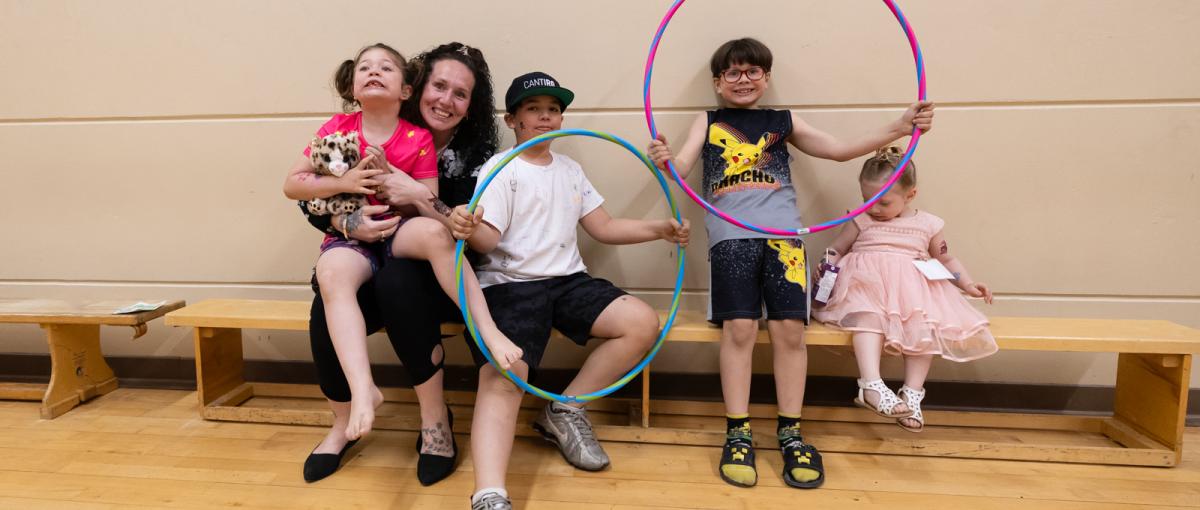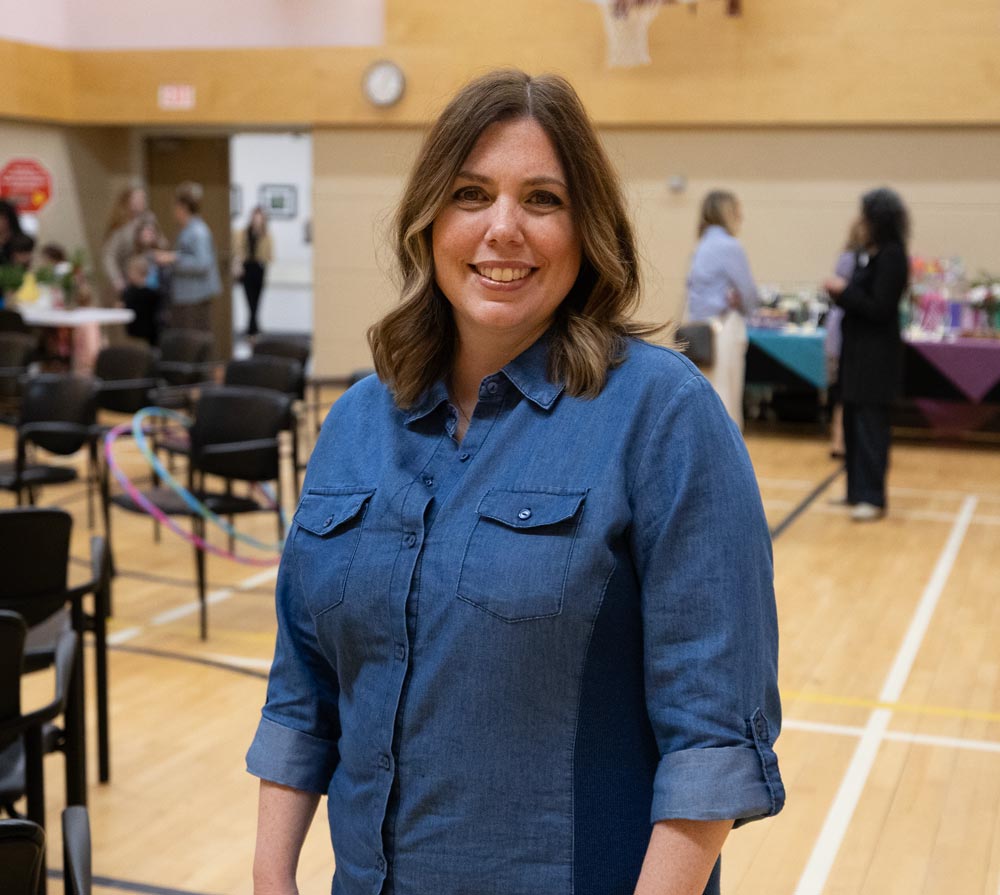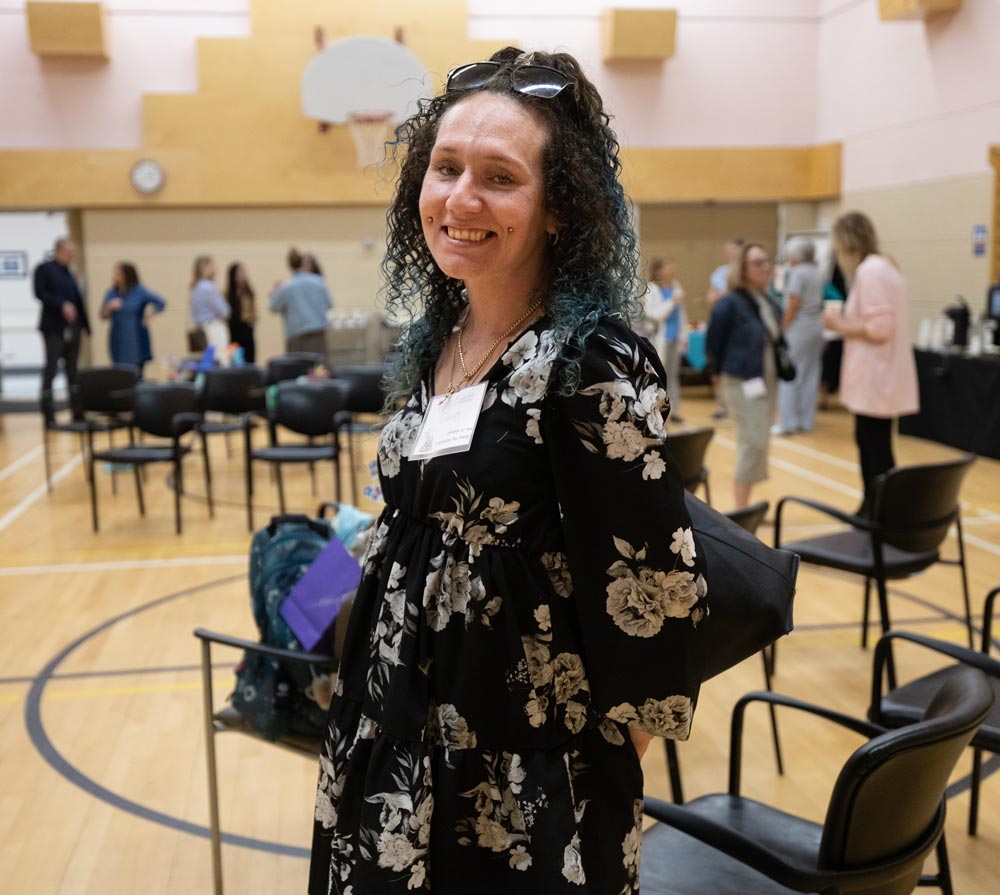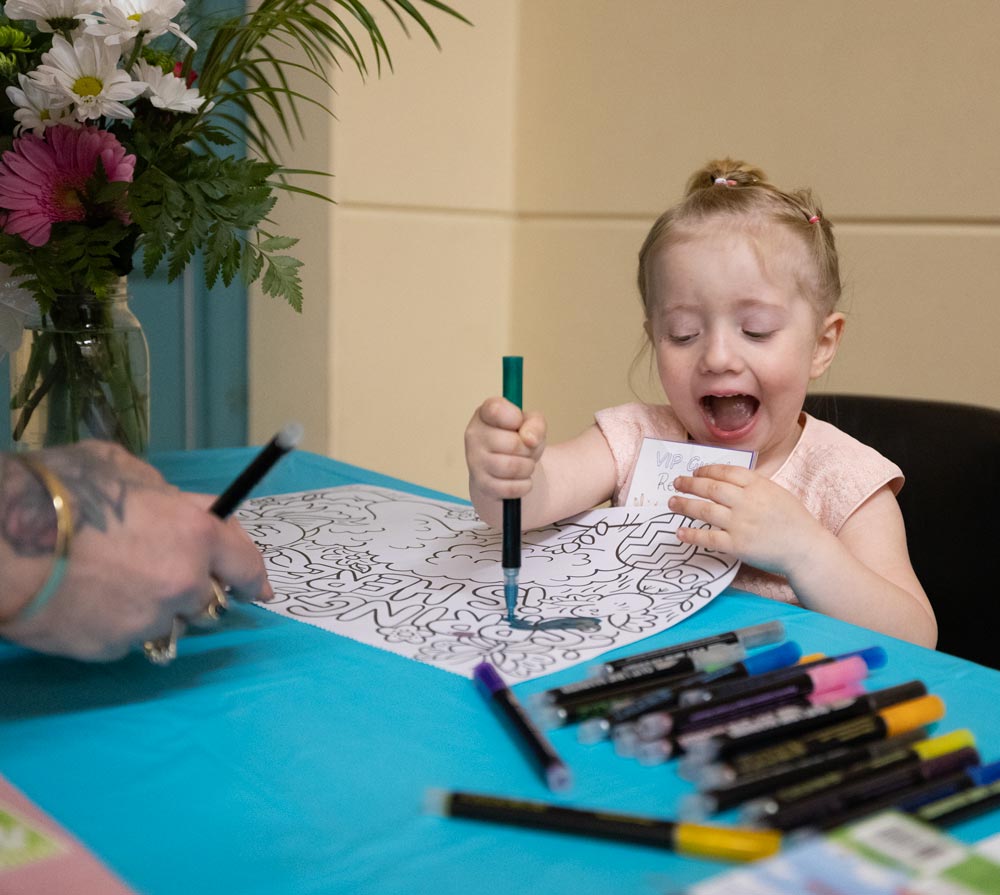Rooming-in approach to helping babies with opioid withdrawal marks 10 years of success at Grey Nuns hospital

August 14, 2025
By Marguerite Watson, senior communications advisor, content lead
Melissa Gara still remembers how supported she felt when she and her newborn son, Jackson, were patients in the Maternal Medication Use and Neonatal Abstinence (MMUNA) program at the Grey Nuns Community Hospital in 2018. She was taking methadone for chronic back pain, and her obstetrician referred her to the program to support her and her baby following delivery.
“Being on methadone is not something that I was proud of, especially because of the stigma around it and the guilt that comes with being on medication like that while you’re pregnant. (The MMUNA program staff) were very accommodating, and there was no judgment,” says Melissa.
Officially launched at the Grey Nuns hospital in 2015, the MMUNA program is a rooming-in approach to managing withdrawal symptoms in babies who’ve been exposed to opioids in their mother’s womb. For up to 10 days after delivery, mothers and babies are kept together in their own calm, quiet room, a departure from the common approach of separating the two and admitting babies to the neonatal intensive care unit (NICU) for specialized care and medication for neonatal abstinence syndrome (NAS). Parents are encouraged to breastfeed, and they learn to recognize signs of withdrawal and how to care for their babies, such as how to settle them through skin-to-skin contact. They also receive follow-up support after they leave the hospital.
The first of its kind in Alberta, the program recently marked its 10-year anniversary at the hospital with a tea — complete with cake, presents and activities for all ages — funded by Covenant Foundation. Former patients and their families gathered with staff in the hospital’s gymnasium to catch up with each other and celebrate the program’s success.
“We’ve had really good outcomes,” says Stephanie Haire, a social worker who has supported the program since its beginning. While the trauma of opioid withdrawal can mean babies end up in foster care, only 12 of the 176 babies who have gone through the MMUNA program have not gone home with their mothers and only 26 have been admitted to the NICU for treatment. Most, if not all, of those 176 newborns would have been admitted to the NICU if they hadn’t been part of the program, says Stephanie.

Stephanie Haire, social worker, has supported the program since its beginning.
Research has shown that the frequent skin-to-skin contact that can happen in a rooming-in model is positive for both parents and babies. For parents, it can lead to reduced anxiety, greater bonding and increased confidence for parenting. And for babies, it can mean a stable body temperature, better sleep, less crying, lower incidences of infection, better weight gain and respiratory stability. Skin-to-skin care also results in increased milk production and more and longer periods of breastfeeding, which are also important for ensuring the health and growth of babies.
For Melissa’s son, Jackson, the skin-to-skin contact was especially helpful. He had some discomfort when he was first born, but he didn’t need medical treatment, Melissa says. “The skin-to-skin was amazing. I just pretty much sat with the baby on my chest the entire time, and he did really, really well.” Melissa had a similar experience with the program when she had her next child, Maverick, in 2022.
Like Melissa, Sarah Dunn is grateful for the time she spent in the MMUNA program with her son, Lukas, in 2016 and her daughters, Lilly and Rebekah, in 2019 and 2022. “The whole hospital experience was just so wonderful,” says Sarah, who is also on medically prescribed methadone. “None of my children needed to be medicated. They didn’t withdraw at all, because of the support and information that the program gave me.”
Sarah says she had a different experience when her older son, AJ, was born in 2015 and she was not part of the MMUNA program. AJ was jaundiced, had problems feeding and showed other signs of withdrawal.

Sarah Dunn says her children are happy and healthy, thanks to the support she received in the rooming-in program.
During the years since the program has been running, Dr. Katharina Cardinal, one of the physicians who started it along with a team of staff members, has learned that it's impossible to predict who will be successful. While early on she expected to see good results for “stable patients,” those who are taking medications like methadone for pain or to treat an opioid use disorder (i.e., opiate agonist therapy) and not using other substances, she has also witnessed “incredible successes” in patients who are “unstable” and using other opioids rather than getting therapy.
“It's just such a pivotal time in a person's life when they have a child,” Katharina says. “It's a time of dramatic change for people. Many of those patients have switched to opiate agonist therapy and have been able to take their babies home, and I've seen them six months or a year or even later doing very well.”
Both Melissa and Sarah feel they have been successful because the program gave them the confidence and knowledge they needed to take care of their babies. “(The program) made a big difference to my confidence level in making decisions about how to be a mother,” says Sarah.
Today, Sarah’s children — Lukas, Lilly and Rebekah — are “all very healthy. They’re just smart, beautiful children,” she says. And Melissa says Jackson and Maverick are “thriving.”

Rebekah Dunn enjoys the colouring station at the anniversary tea for the rooming-in program.
The success of the MMUNA program at the Grey Nuns hospital has led researchers at the University of Alberta to launch a project to introduce a rooming-in program at eight other hospitals in Alberta. Called the Alberta Neonatal Abstinence Syndrome Mother-Baby Care ImprovEmeNT (NASCENT) project, it aims to achieve similar results: lower NICU admission and length of stay, an increased number of babies going home, higher breastfeeding rates and more mothers enrolled in programs for substance use. The project will also look at whether a rooming-in model of care reduces the costs of caring for babies with NAS in Alberta.
Looking back, Katharina is thankful to the Grey Nuns administration for supporting the rooming-in approach even before it became an official program at the hospital in 2015. “I’m so appreciative that they let me do these admissions and that they trusted that this was the right thing to do. It’s incredibly heartwarming as a healthcare provider to know that you’re making a huge difference in someone’s life. Often, we’re just putting a Band-Aid on things, and this feels like we’re actually fixing something,”
Looking ahead, the MMUNA program is considering ways of broadening its admission criteria to include patients who use other substances, such as amphetamines, cocaine, marijuana and alcohol, to help mitigate withdrawal in more newborns. The impact of giving babies a positive start to life in a supportive environment and able to go home with their own family unit is “immeasurable,” says Stephanie.
Melissa and Sarah would recommend the program to anyone going through a similar situation, whether they are on methadone, in recovery or using other substances. “If you’re having a kid and you’re on methadone or medications that could be addictive, this program is 100 per cent the best option to choose because (Dr. Cardinal and the nurses) understand the situation, and they are 100 per cent there to help,” says Sarah.
Melissa agrees. “I think there needs to be more programs like this, with opioids being a bigger thing. You might not have an active addiction, but to have somebody support you during the time you’re going to deliver is huge.”